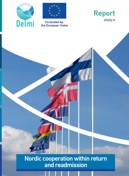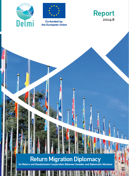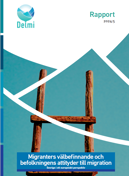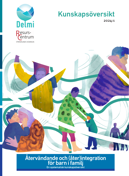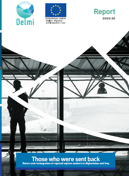The overview incorporates a mixed-methods approach, including both quantitative and qualitative studies. This approach facilitates comparison across studies and offers insights into the overall strength of associations between host country interventions and return migration as established in quantitative studies, while also taking account of the common themes and contextual insights that qualitative studies can provide on the role of host governments in return migration. Potential studies were identified through searches conducted across a range of bibliographic and abstract databases. Of the included studies, 46 were qualitative and 16 were quantitative, with 14 providing direct quantitative tests of the impact of host countries policies.
This review of the scientific literature found very limited evidence that European countries’ direct attempts to increase return migration – such as travel cost coverage, reintegration support, and financial incentives – lead to significant increases in voluntary return migration. Financial support is necessary to remove barriers to return but is insufficient to motivate return among migrants who are well-integrated in or who maintain strong ties to the European host country. Reintegration assistance, while appreciated, rarely proves sufficient to meet the challenges related to the sustainability of return, especially if support is limited to short-term financial aid without broader social and economic reintegration strategies.
However, more indirect measures seem to have an effect. The preservation of legal status, access to mobility rights (such as dual citizenship or re-entry possibilities) and transnational connections emerged in this systematic review of the literature as enablers of voluntary return. Migrants were more willing to consider return when they were not being permanently cut off from the European country where they resided as immigrants.
Furthermore, the findings underscore the importance of addressing the broader context in which migrants make return decisions. Key factors such as conditions in the country of origin, age-related considerations, family ties in Sweden and in the country of origin, gender differences in return possibilities, and ethnic minority status all play a critical role in shaping outcomes.
About the authors
Andrea Voyer, Professor in Sociology, Stockholm University.
Klara Nelin, Master in Sociology, Stockholm University.
Alice Zethraeus, Master in Sociology, Stockholm University.
The Research Overview was published on 20 October 2025.
Picture: Global Residence Index via Unsplash.

